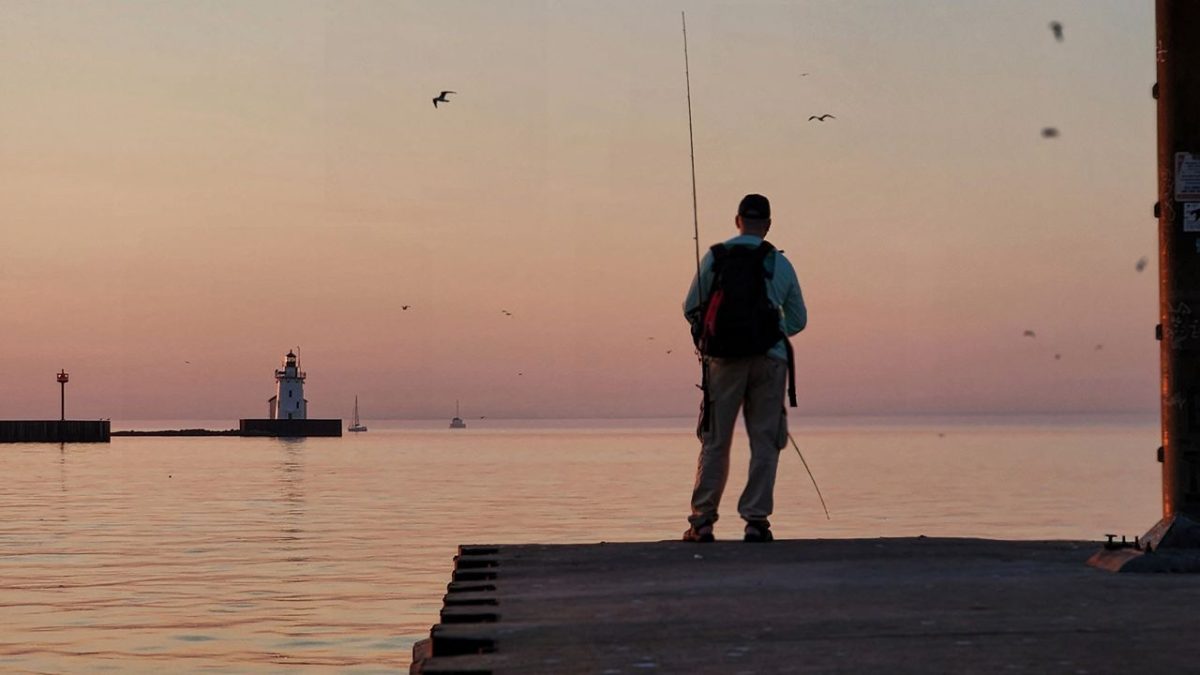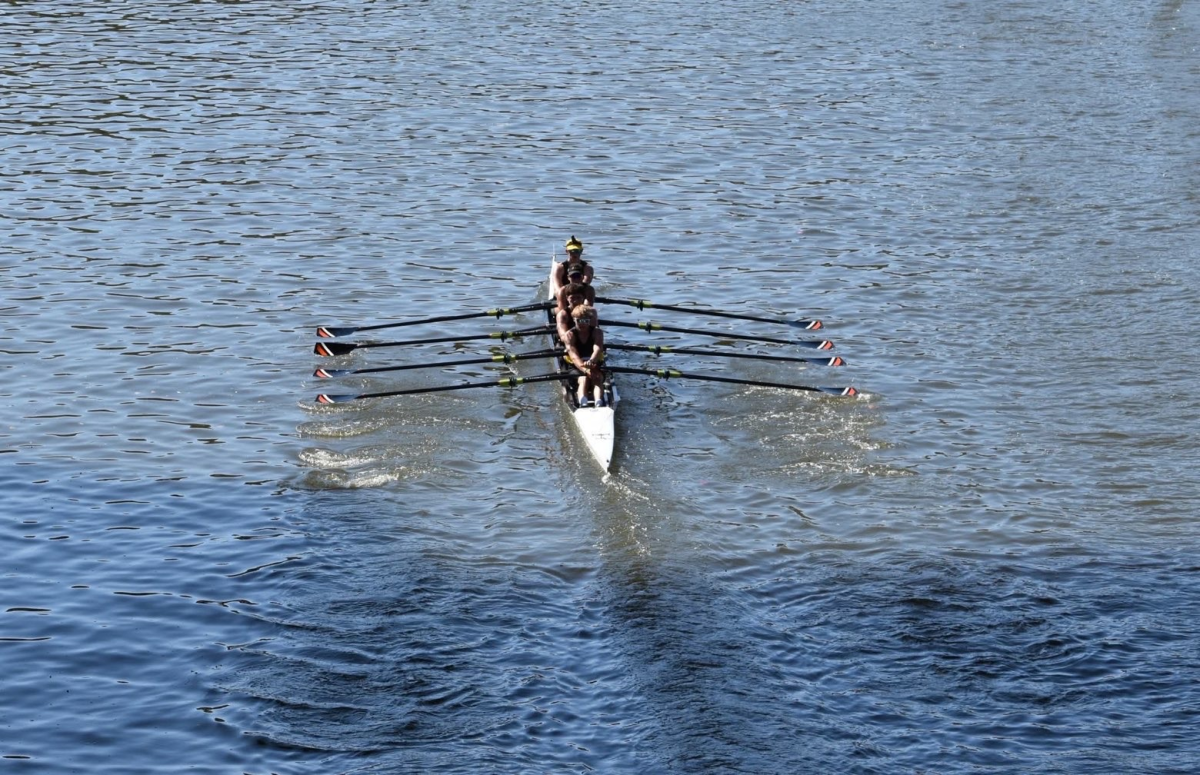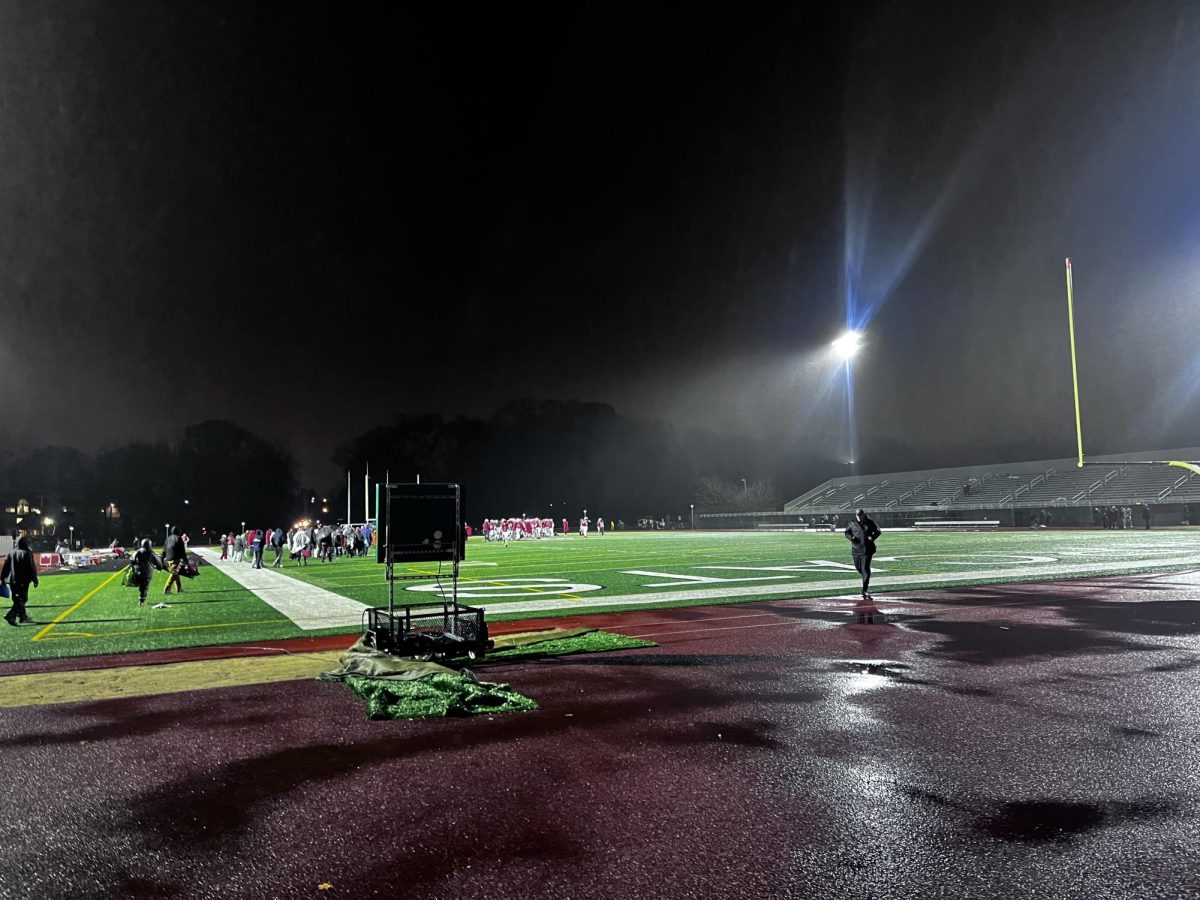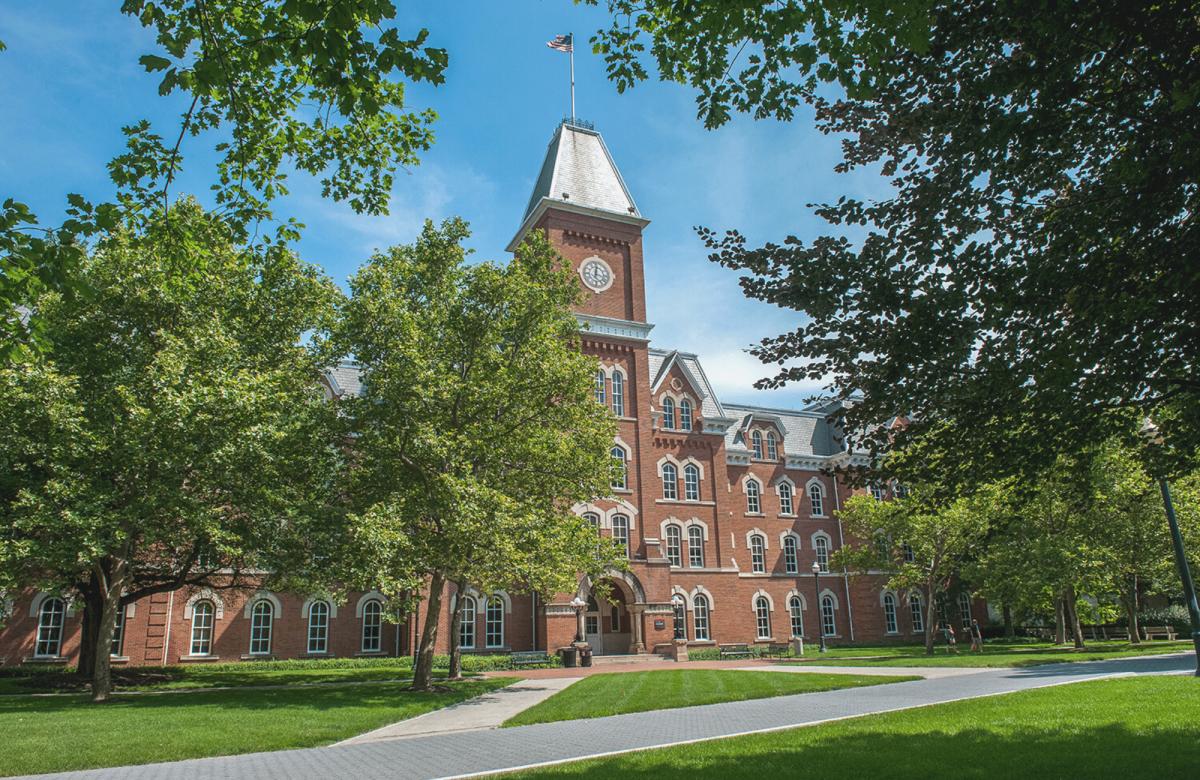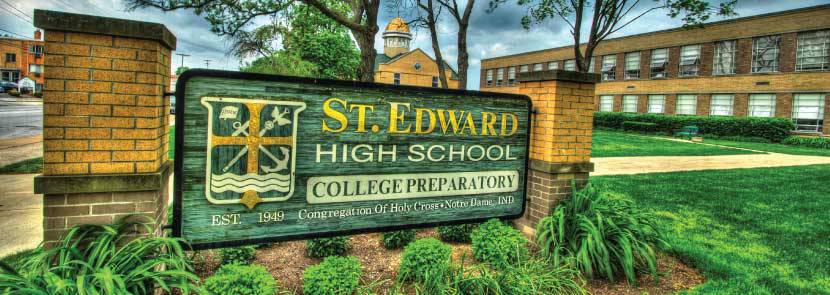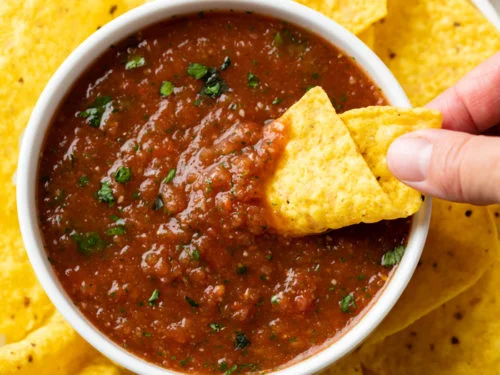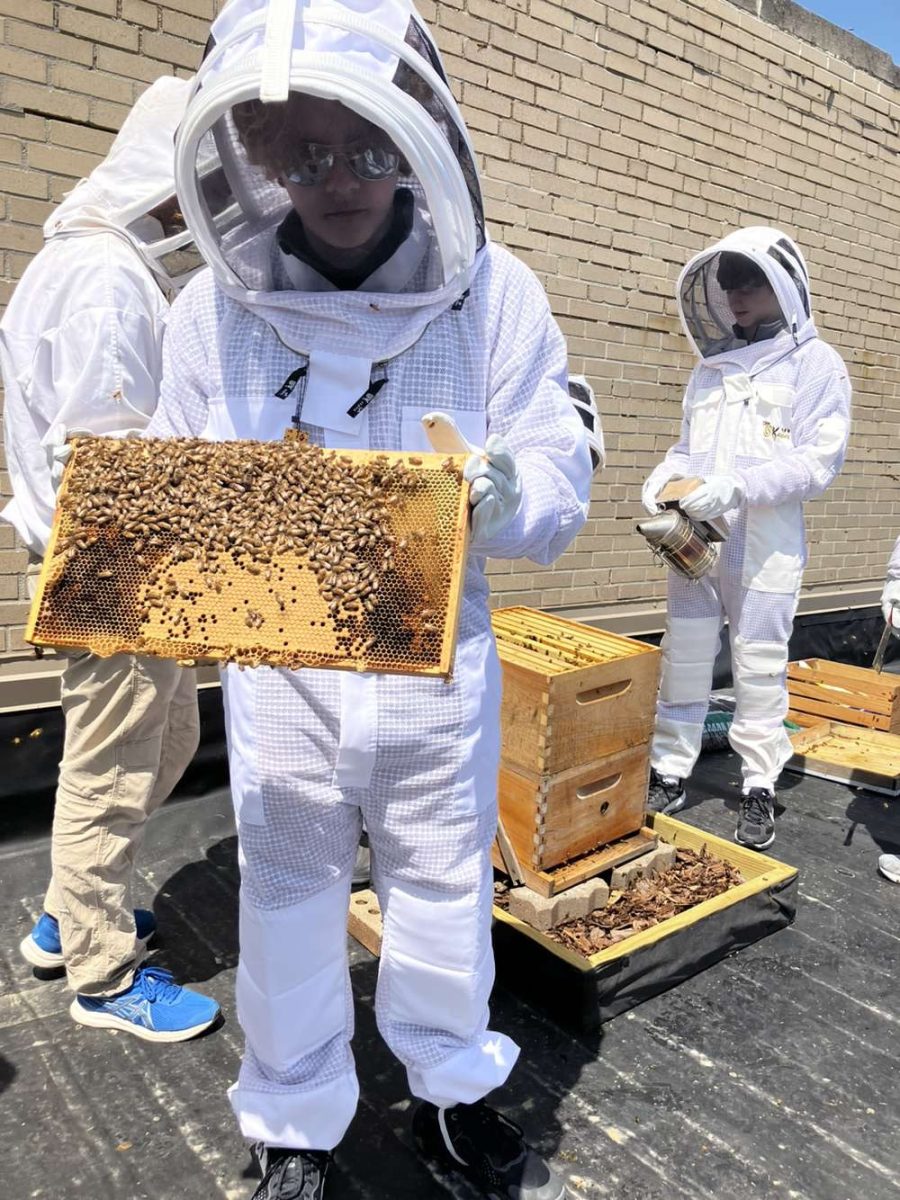What do goldfish, excrement, herbs, and the St. Edward fishing club have in common? St. Edward High School’s new aquaponics system, of course. Aquaponics is a sustainable, closed-loop system that combines aquaculture and hydroponics to simulate nature. This system employs the fish waste to fertilize soil by diverting the water into beds of plants, which acts as a filter for the fish, thus closing the loop.
Mr. Barrett, a freshman theology teacher at St. Edward, is the leader of the Fishing Club and was recently on paternity leave. During this time, Mr. Barrett told The Edsman he, “spent a lot of time with my son and I went down a YouTube rabbit hole about aquaponics.” Additionally, Mr. Barrett was contacted by the head of the St. Edward’s Farmstead, Señora Hardin, about building an aquaponics system for the urban garden. Mr. Barrett said, “It was like Divine Providence… She had no idea that I had spent hours researching it.” After this, he reached out to his Fishing Club members to see who would be interested. Three students, Samuel Belenki, Luca Swanson, and yours truly, Sullivan Meneghetti, were the students leading the charge on this project.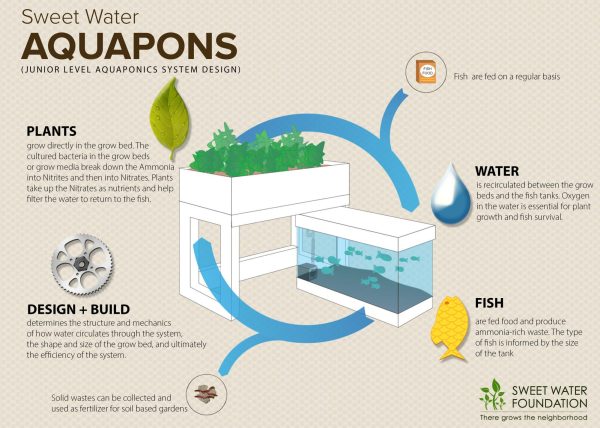
Currently, Mr. Barrett and his motley crew of Fishing Club students have assembled a fish tank and a trough with clay pebbles and a siphon to filter and drain the water throughout the closed-loop system. The fish will be added to the tank as soon as the water has reached the right conditions. Initially, the Fishing Club plans on using goldfish; however, if they expand, tilapia or perch may be used. St. Edward is currently in a partnership with INTAG Aquaponics Systems. The company works with schools to educate and build aquaponics systems all over America. The INTAG plan is to get St. Edward’s aquaponic system off the ground in the next 2 years.
Mr. Barrett laid out the road map for where he plans to go from here, “The ultimate plan is to build a 185 to 200-gallon fish tank outside as part of the urban agriculture FarmSTED and contribute all the food to the community, maybe even host a Lenten fish fry.” He asserts that food is at the center of the community; thus, communities should learn to grow and consume it responsibly and sustainably. Barrett is concerned, “There’s so much food that’s wasted in our population, and if we rethought food sustainability, we can see that there is enough food to go around… What if that’s not only a matter of our solution, but what if that’s our priority to respond to the gospel’s call to feed the hungry?”
The new St. Edward aquaponics project has an impact beyond plants, excrement, and fish. The SEHS FarmSTED founder, Señora Harden, supports Mr. Barrett’s project, “Part of our mission is to produce food for our neighbors in need, but another part is to open students’ minds to different facets of the food system…any experience of growing plants or working with animals furthers our goal of creating eco-literate students.” Moreover, Hardin suggests, “Aquaponics is a perfect example of how nature does things that make sense, and does them efficiently; it’s a closed loop where animals feed the plants, plants feed the animals, and filter the water, so you can observe first-hand natural, mutually beneficial relationships. When communities thrive, everyone benefits; if you would like to be a part of this exciting new experience, please contact Mr. Barrett or join the Fishing Club on F Days during community period.
